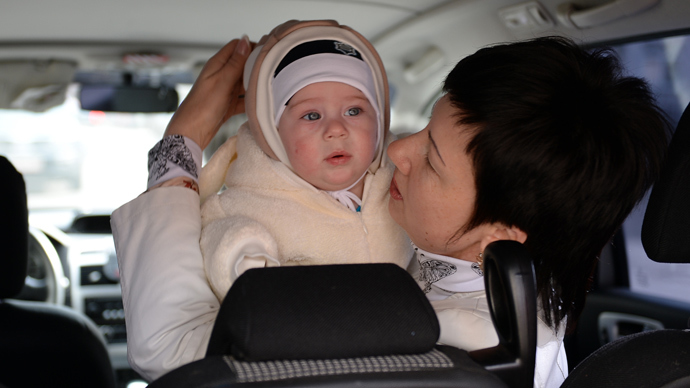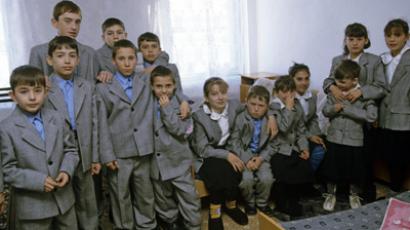Russian region completely bans foreign adoptions

The legislature of the coal-mining territory of Kemerovo has voted to completely outlaw adoptions of local children by foreigners, making their region the first subject of the Russian Federation to introduce such a radical measure.
The official comments to the bill read that “the solution of
the problem of adoption of Russian citizens is the internal issue
of the Russian state.”
One of the Kemerovo lawmakers, Galina Solovyova, has said that the work on the bill had commenced because of numerous reports about violations of rights of children adopted into foreign families, about cruel treatment or even violent deaths of such kids. She also recalled that some Western nations had dedicated internet resources “allowing to buy and sell adopted Russian children,” most likely referring to the recently-uncovered underground adoptions network that allowed US adoptive parents to “re-home” kids they no longer wanted.
Currently there are two nationwide adoption bans in Russia – the ban on adoptions by US citizens and by proxy of US organizations came into force in late December 2012, and the ban on adoptions by foreign same-sex couples was introduced in early July this year.
It should also be noted that Russian authorities are heavily promoting the practice of bilateral agreements between other countries regulating adoptions. These documents grant Russian officials some control over the fate of adopted kids who are considered Russian citizens before coming of age, at which time they can choose their own citizenship.
Several Russian officials have also suggested outlawing the adoption of Russian kids to countries where same sex marriage is legalized, to prevent them becoming part of such families by changing parents. This measure has not yet been passed.
The initial act banning US adoptions caused a wave of protests in Russian mass media, internet and sometimes in Russian streets. Opponents of this measure noted that it would deprive tens of thousands of Russian orphans of a chance for a better life across the ocean, adding that US citizens often adopted sick kids who had very slim chances of adoption at home.
Supporters of the bill pointed to the fact that US authorities had been extremely reluctant to allow Russian diplomatic staff to oversee the investigation of cases of cruel treatment and sometimes even killings of adopted Russian children in US families.
When the ban was eventually introduced, Russian legislators went
on to approve a set of amendments that simplified the internal
adoption procedure and increased the state allowances to adopting
families.














